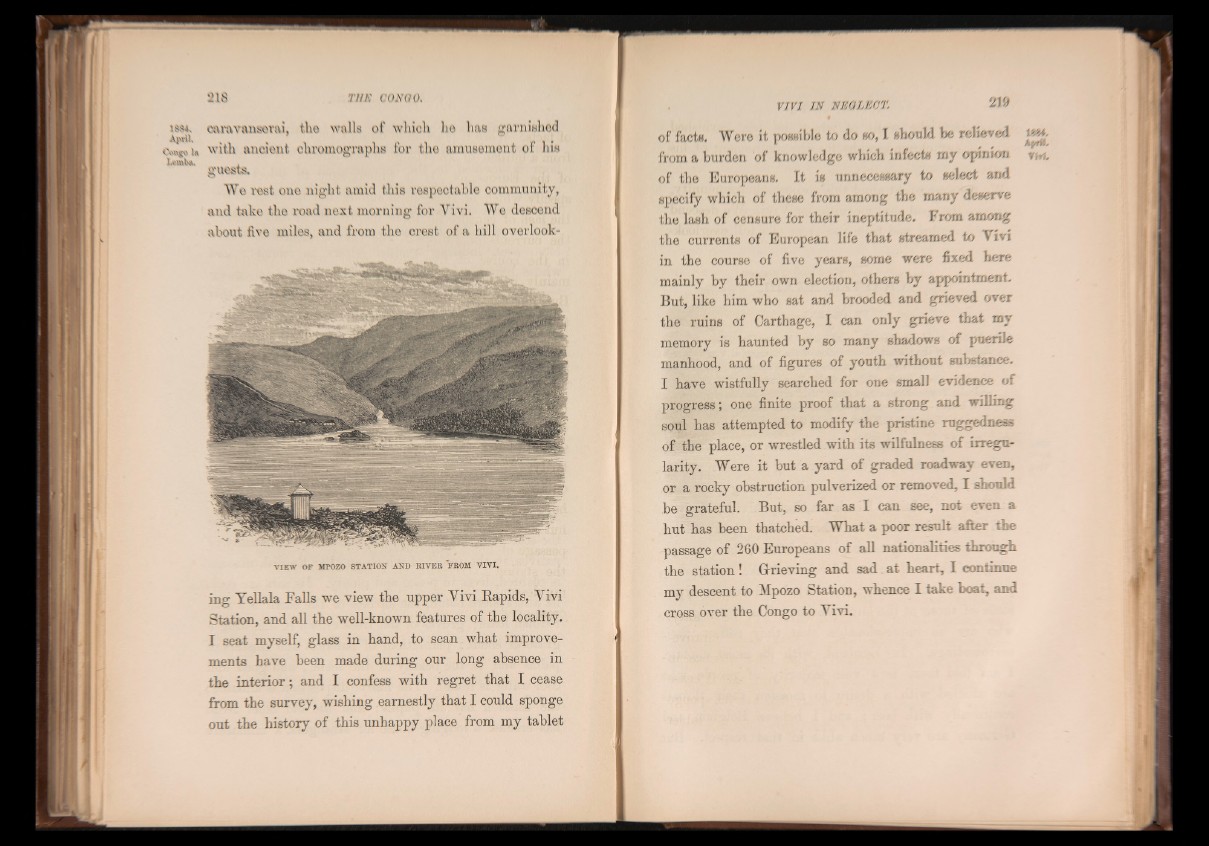
iss*. caravanserai, the walls o f which he has garnished
cvngoU w ith ancient chromographs for the amusement of his
guests.
We rest one night amid this respectable community,
and take the road next morning for V ivi. We descend
about five miles, and from the crest of a hill overlookof
VIEW OF MPOZO STATION AND RIVER FROM VIVI.
ing Yellala Falls we view the upper Yivi Rapids, Yivi
Station, and all the well-known features of the locality.
I seat myself, glass in hand, to scan what improvements
have been made during our long absence in
the interior; and I confess with regret that I cease
from the survey, wishing earnestly that I could sponge
out the history of this unhappy place from my tablet
facts. Were it possible to do so, I should be relieved wn
from a burden of knowledge which infects my opinion vw.
of the Europeans. It is unnecessary to select and
specify which of these from among the many deserve
the lash of censure for their ineptitude. From among
the currents of European life that streamed to Vivi
in the course of five years, some were fixed here
mainly by their own election, others by appointment.
But, like him who sat and brooded and grieved over
the ruins of Carthage, I can only grieve that my
memory is haunted by so many shadows of puerile
manhood, and of figures of youth without substance.
I have wistfully searched for one small evidence of
progress; one finite proof that a strong and willing
soul has attempted to modify the pristine ruggedness
of the place, or wrestled with its wilfulness of irregularity.
Were it but a yard of graded roadway even,
or a rocky obstruction pulverized or removed, I should
he grateful. But, so far as I can see, not even a
hut has been thatched. What a poor result after the
passage of 260 Europeans of all nationalities through
the station! Grieving and sad at heart, I continue
my descent to Mpozo Station, whence I take hoat, and
cross over the Congo to Yivi.